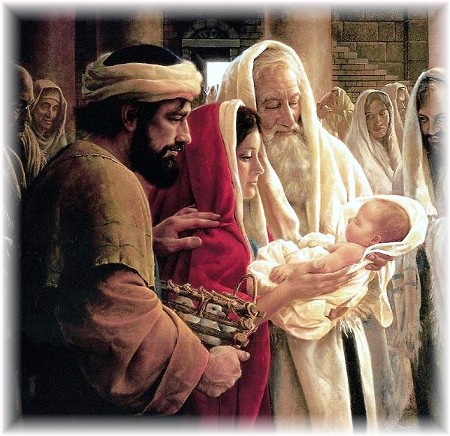
And there was a prophetess, Anna . . . . She was advanced in years, having lived with her husband seven years from when she was a virgin, and then as a widow until she was eighty-four. She did not depart from the temple, worshiping with fasting and prayer night and day. And coming up at that very hour she began to give thanks to God and to speak of him to all who were waiting for the redemption of Jerusalem.
Luke 2:36-38
Anna, a female prophet, lived her life in the Temple courts: she was dedicated to worship, fasting, and praying. Anna represents wholehearted devotion to God and commitment to enjoying his presence (Luke 2:37).
Like Simeon, her fellow prophet (Luke 2:25-35) spending time in God’s presence means knowing God’s heart, and to know God’s heart is to hear his voice, and to hear God’s voice is know his ways (Isa. 55:8-9). Immediately after Simeon’s word, Anna confirms that this child will bring about the redemption of Israel (Luke 2:38). To be the redeemer of Israel is to be the Messiah, the chosen one, who would free Israel from her bondage. Anna’s word further confirms to Mary and Joseph that the God of Israel has major plans for their son, bigger plans than they can imagine.
Luke does not record the Blessed Virgin Mary’s response to these two prophetic words, but we know that in another situation, she chose the “ponder these things in her heart” (Luke 2:19 KJV). Pondering is not passivity. Pondering says to God, “I trust your prophetic word, I may not understand it, therefore I will not talk about God’s instruction until he reveals its meaning to me.” Pondering is faith, pondering is waiting on God, pondering is giving God opportunity and time.
The season of Advent is a unique time for hearing and obeying God’s prophetic word. Like Simeon and Anna, we are called to Spirit-waiting, Spirit-listening, Spirit-anticipation, and Spirit-obedience. Like the Blessed Virgin Mary, we are called to Father-directed submission, Spirit-led action, and Christ-follower trust.
We may not identify with Anna’s call to prophecy or her living situation, yet her commitment to the Spiritual Disciplines of prayer, fasting, and worship–a life focused in mind, body, and activity on engaging God–is a commitment we all can pursue.
“Anna,” The Renovare Spiritual Formation Bible, New Revised Standard Version with Deuterocanonical Books, eds., Richard J. Foster, Dallas Willard, Walter Brueggemann, and Eugene H. Peterson (San Francisco: HarperCollins, 1989), 1889.




